Submitted by WA Contents
MVRDV revives old office building with bright yellow façade and zigzagging staircase in Berlin
Germany Architecture News - Dec 04, 2023 - 16:33 5473 views
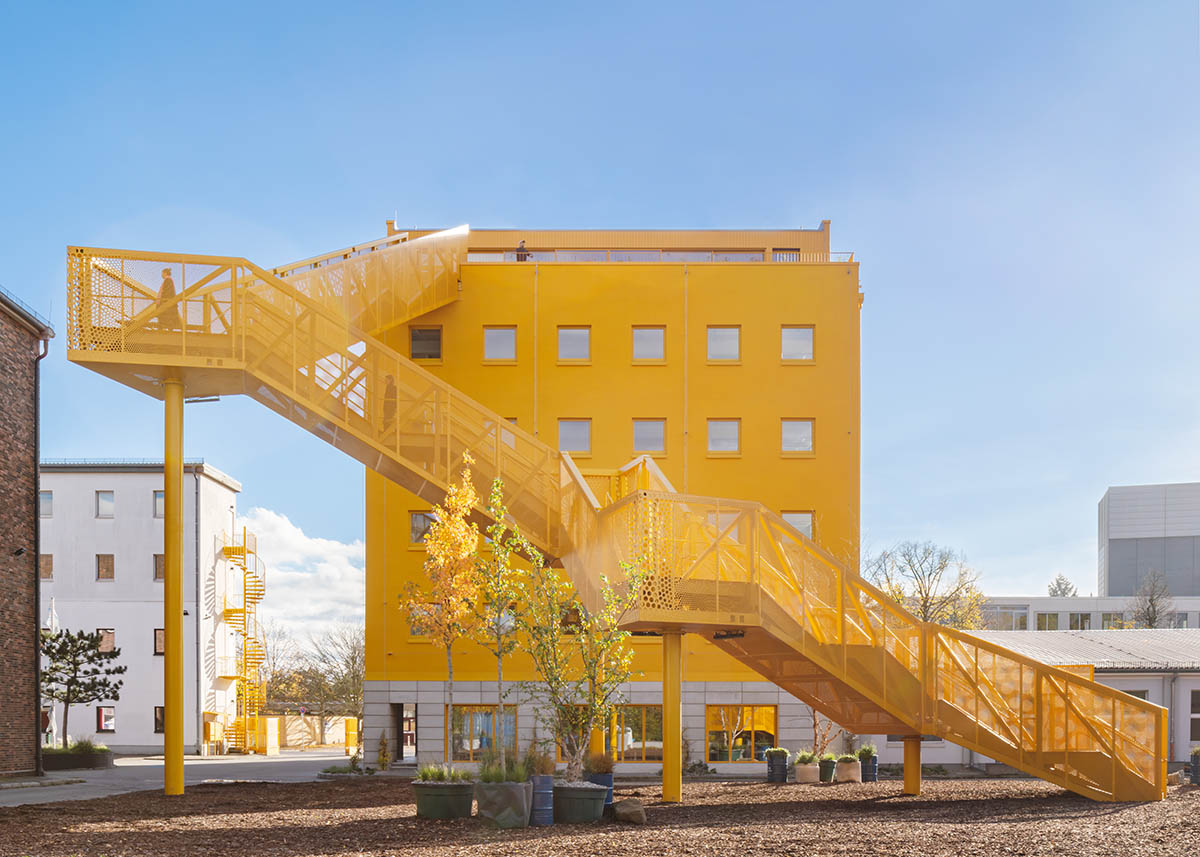
MVRDV has revived an old office building built in the 1990s with bright yellow façade and zigzagging floating staircase in Berlin, Germany.
Named Atelier Gardens Haus 1, the 2,575 mixed-use building is comprised of offices, workshop, café, bar and co-working space designed together with co-architects Hirschmüller Schindele Architekten.
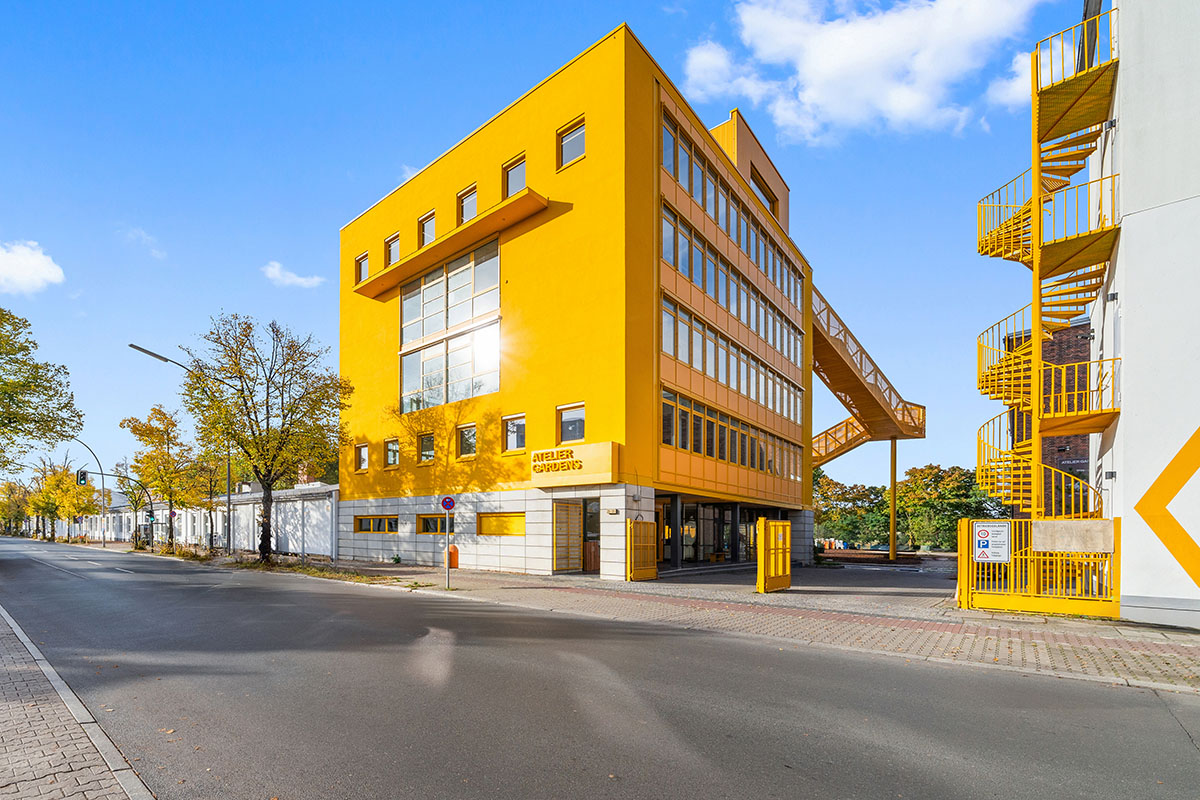
Image © Lukas Drobny
Situated at the southern edge of Berlin’s Tempelhof Airport, the development is the second project within the award-winning 23,800-square-metre campus masterplan for Atelier Gardens in Berlin, following last year’s reopening of TON 1, a historic film studio originally built in the 1920s.
The masterplan transforms the campus of the Berliner Union Film Ateliers (BUFA) as part of a vision to expand the site’s user base beyond filmmakers to encompass all forms of ‘change makers’, including impact organisations and individuals with a focus on climate activism and social justice.
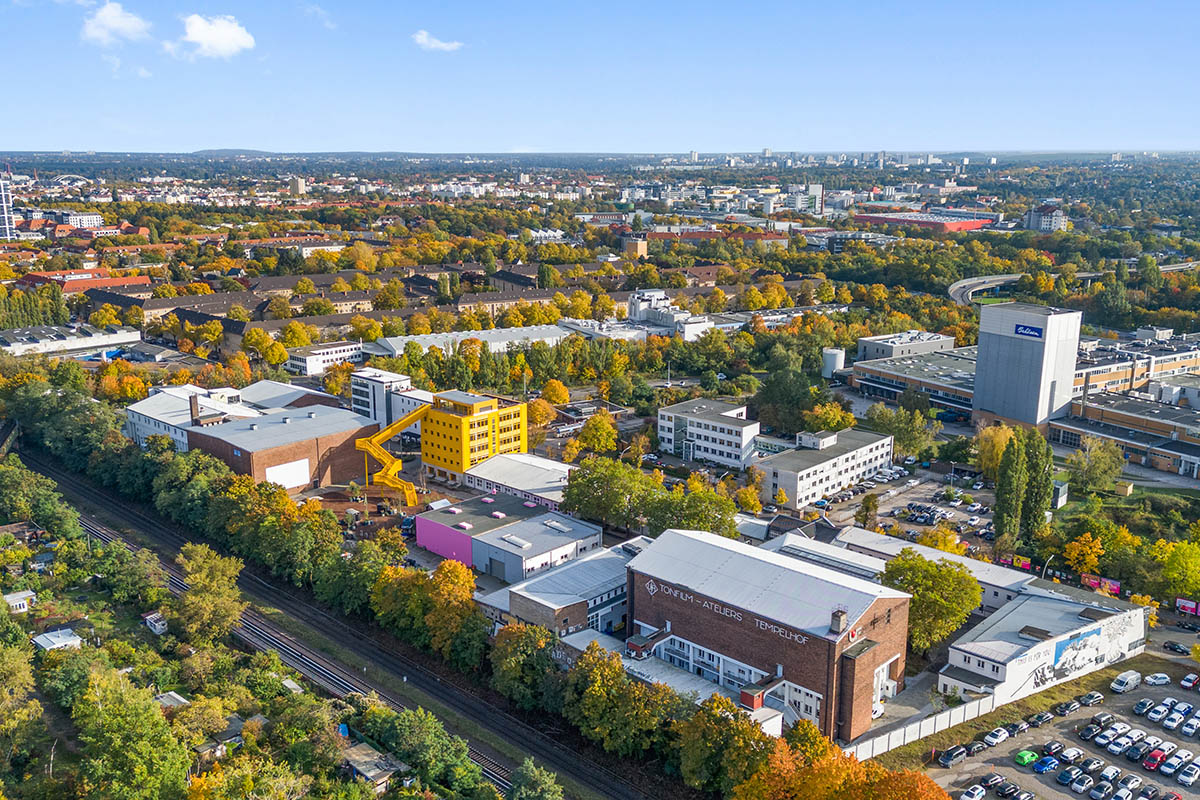
Image © Lukas Drobny
Now redressed with MVRDV's colorful scheme, the building, envisioned with bright yellow collor, was completed with a new living roof, and a sustainable timber rooftop pavilion and terrace, accessible via a grand external staircase.
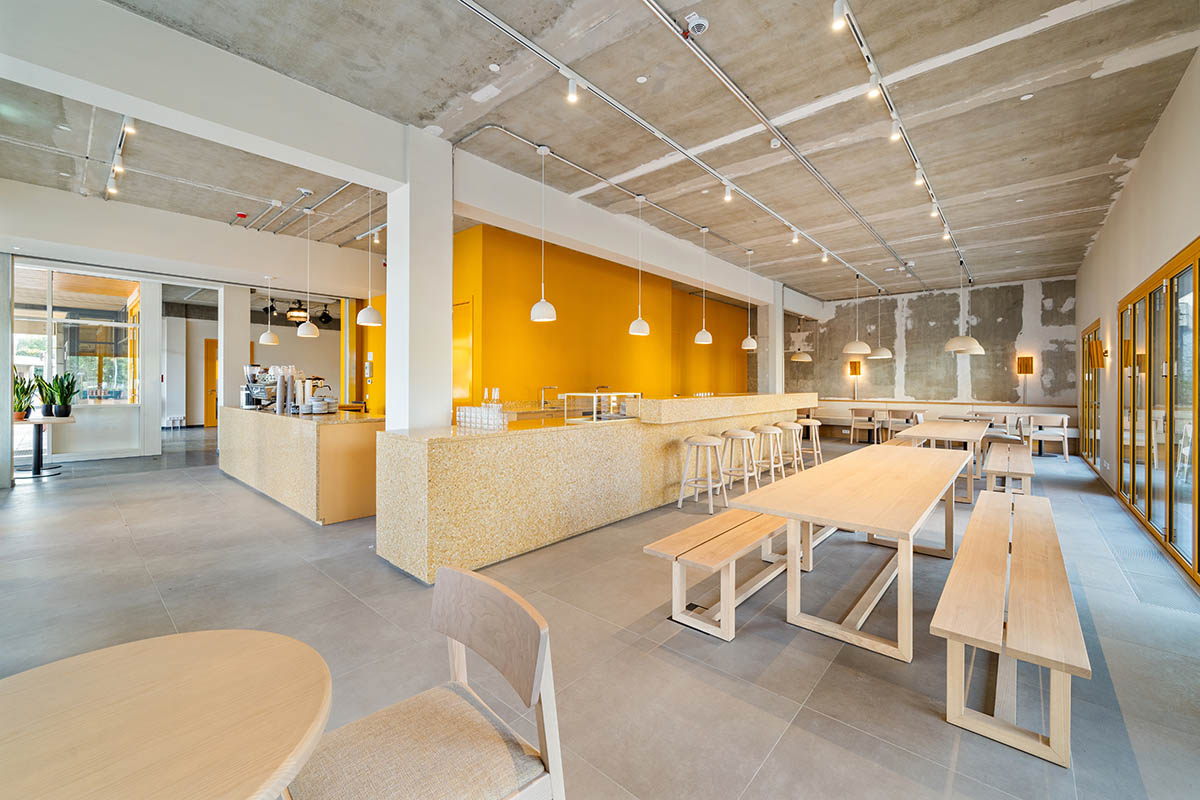
Image © Lukas Drobny
"The masterplan is envisioned as a series of sustainable transformations, taking advantage of the existing structures rather than demolishing them to refresh the buildings while maximising the potential of the spaces between," said MVRDV.
"It takes an incremental approach, considering each building transformation as a response to the previous ones."

As the studio noted, "these renovations are complemented by an ecologically focused landscape designed by Harris Bugg Studio, which removes large areas of impermeable paving, reduces vehicle movements, and significantly enhances water permeability and biodiversity, including green plazas and a new living roof for HAUS 1."
While MVRDV’s first project on site, TON 1, required a sensitive renovation, HAUS 1 called for a bolder touch. Originally built in 1997, the office building contributed little to the character of the campus.

Given its location next to the entrance of Atelier Gardens, as well as height that makes it visible from the former airfield of Tempelhof, the decision was made to transform the building into an iconic presence on the neighbouring Oberlandstraße and an emblematic symbol of the transformation of the BUFA campus.

"The newly transformed HAUS 1 is more than a gateway to this unique campus devoted to impact," said MVRDV founding partner Jacob van Rijs.
"It is a representation of the Atelier Gardens community and their commitment to chart a different vision of society – one that’s optimistic, yet radical and innovative. With this second project in our masterplan, we join them on this mission and invite more people to follow," Van Rijs added.
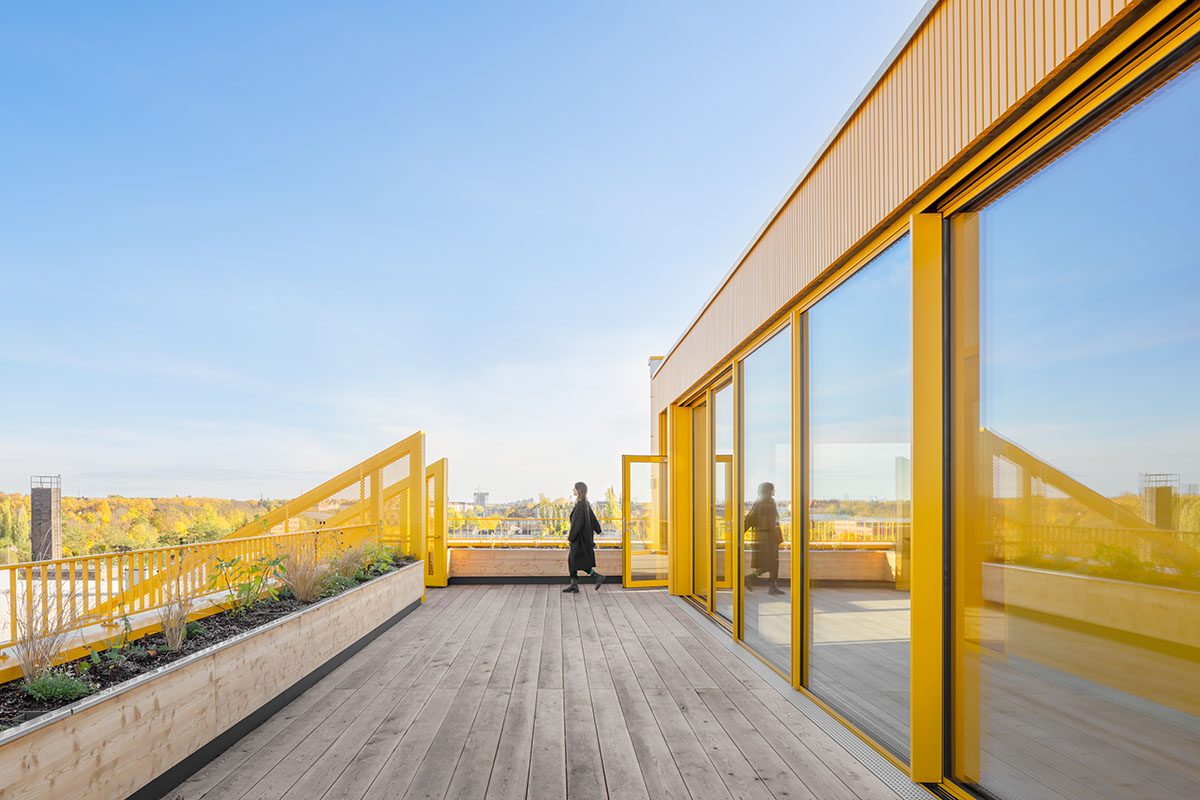
The yellow color makes a bold statement for the building's overall presence. Once plain white, the building is now a sunshine yellow all over, drawing attention to the campus from both near and far.
Once visitors enter the campus, they will immediately encounter another clear sign: from the central plaza of Atelier Gardens, a zig-zagging yellow stair-scape, dotted with seating and viewing platforms framing views of Tempelhofer Feld and the Berlin skyline, leads directly to the roof of HAUS 1.

"From the roof, one can witness the entire skyline of Berlin's urban landscape, with Tempelhofer Feld as its front yard,” highlighted Van Rijs.
There the building has been extended with a timber pavilion of cross-laminated prefab modules, with bio-based materials and healthy finishes, such as a clay ceiling.

A living roof, enriched with native plants, completes the newly accessible rooftop. Additionally, this rooftop is also used to collect rainwater, feeding into a comprehensive water retention plan implemented on-site.
This green landscaping, new roof insulation, and sun shades on the building’s two glass façades reduce heat gain in the summer, improving the building's climate resilience, while low-temperature underfloor heating moderates the indoor climate in the cold months.
All lighting has been converted to energy-efficient LED systems and the sanitary fittings are all water efficient, including low water-use WCs that will be flushed with recycled rainwater from the next phase of the campus’ rainwater harvesting system.

Internally, HAUS 1 will host adaptive work and meeting spaces across four floors, including the headquarters of Atelier Gardens and a café.
MVRDV have altered the floorplans to maximise the building’s flexibility, simplifying future changes in use or layout and thus extending the building’s lifespan.

With its focus on reusing as much of the structure as possible, and giving preference to durable, recyclable materials with a low environmental footprint whenever new material was required, HAUS 1 shows how building transformations can do more with less.
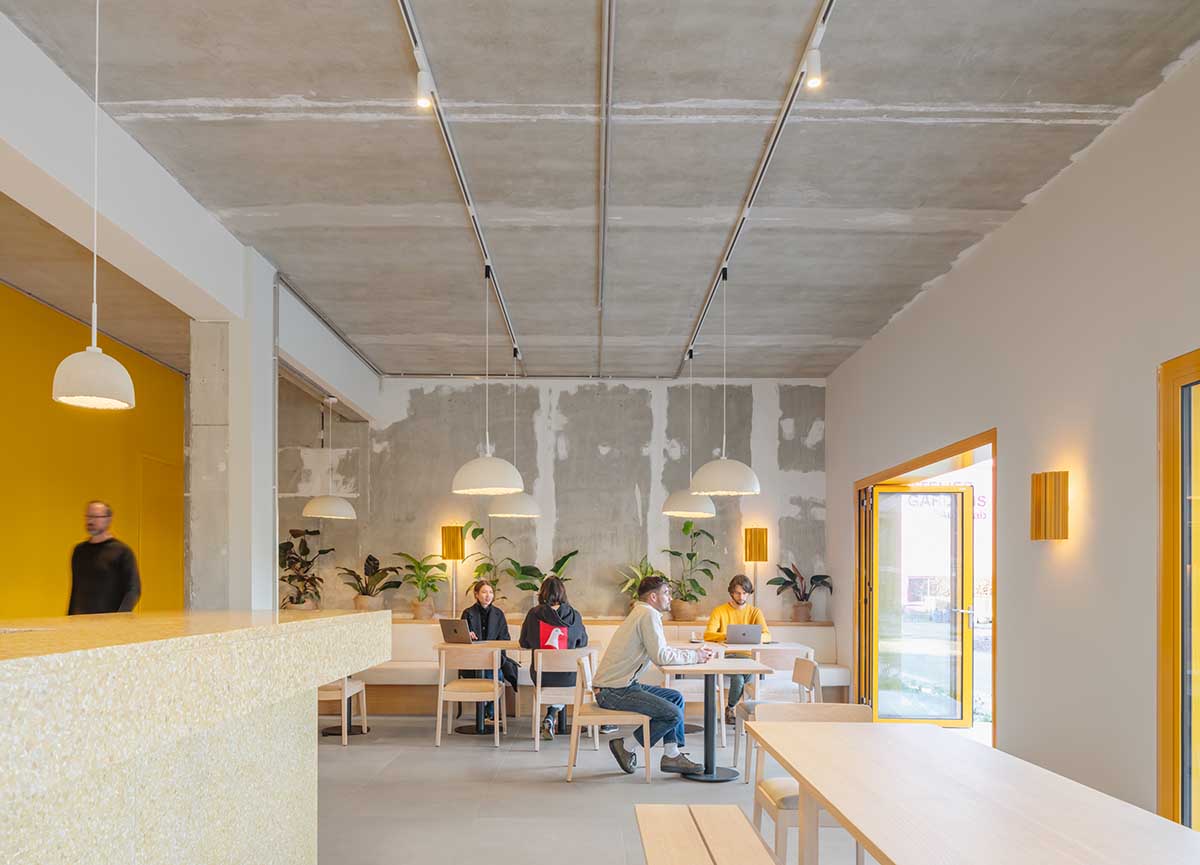
MVRDV is designing the Atelier Gardens masterplan and the buildings within it for London-based property investor and developer Fabrix.


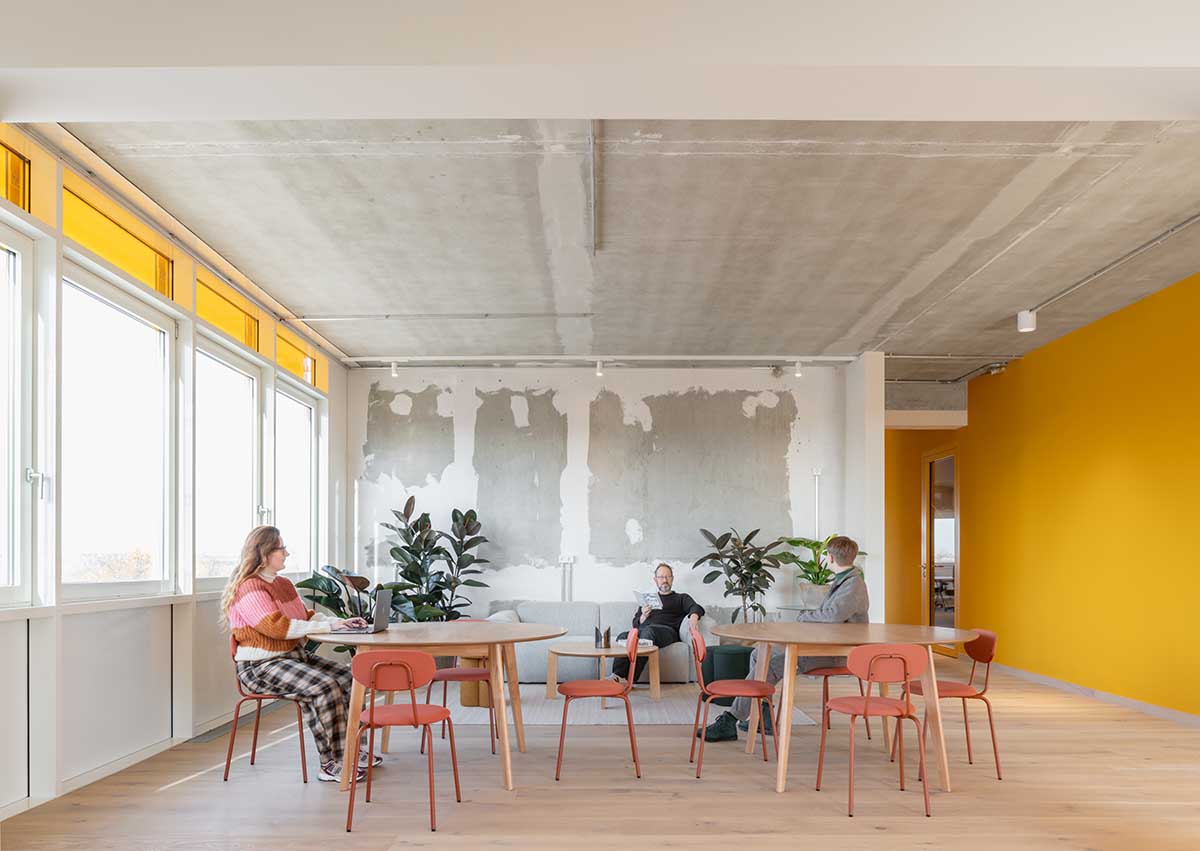
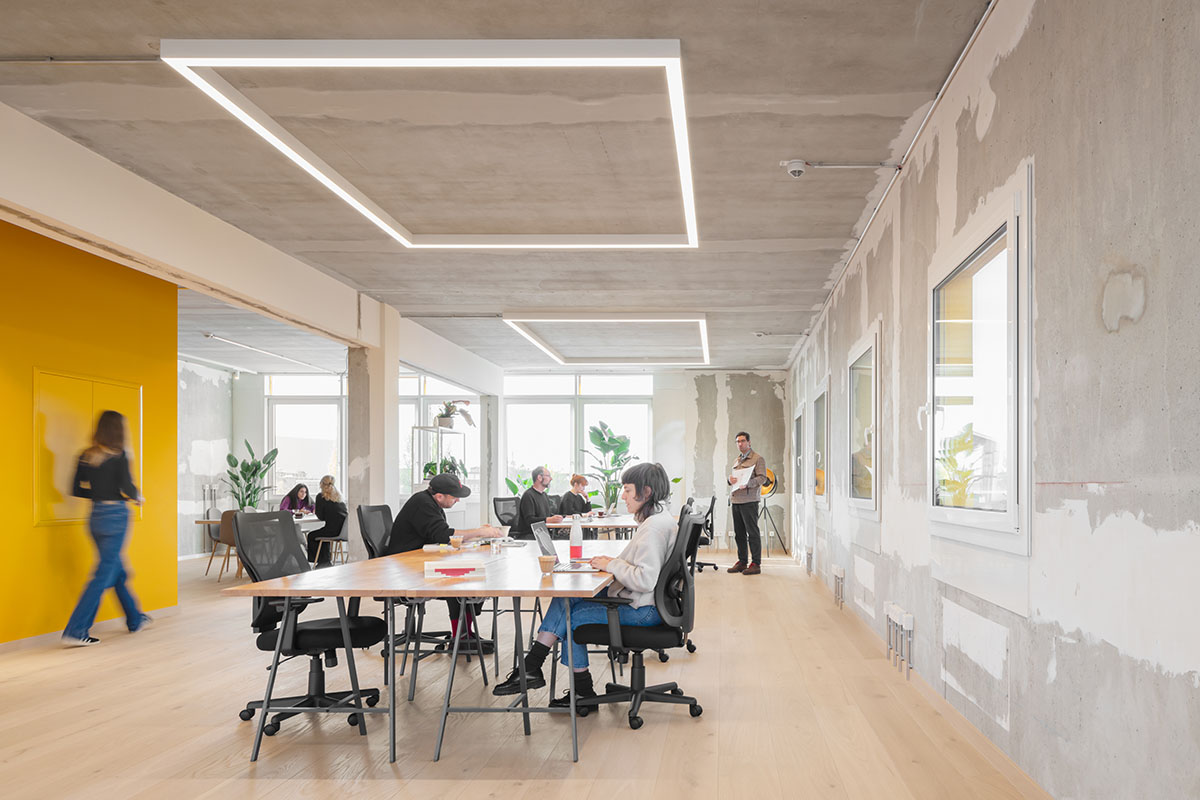
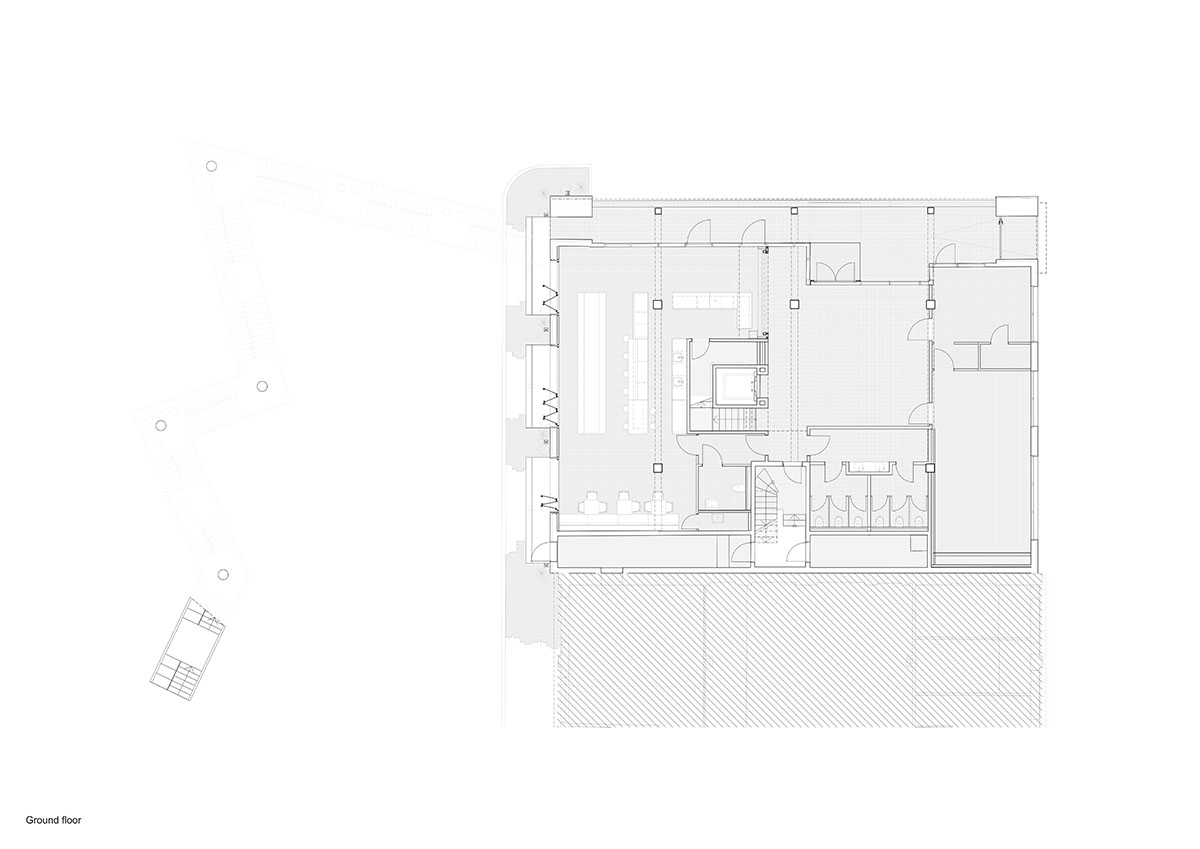
Ground floor plan

First floor plan
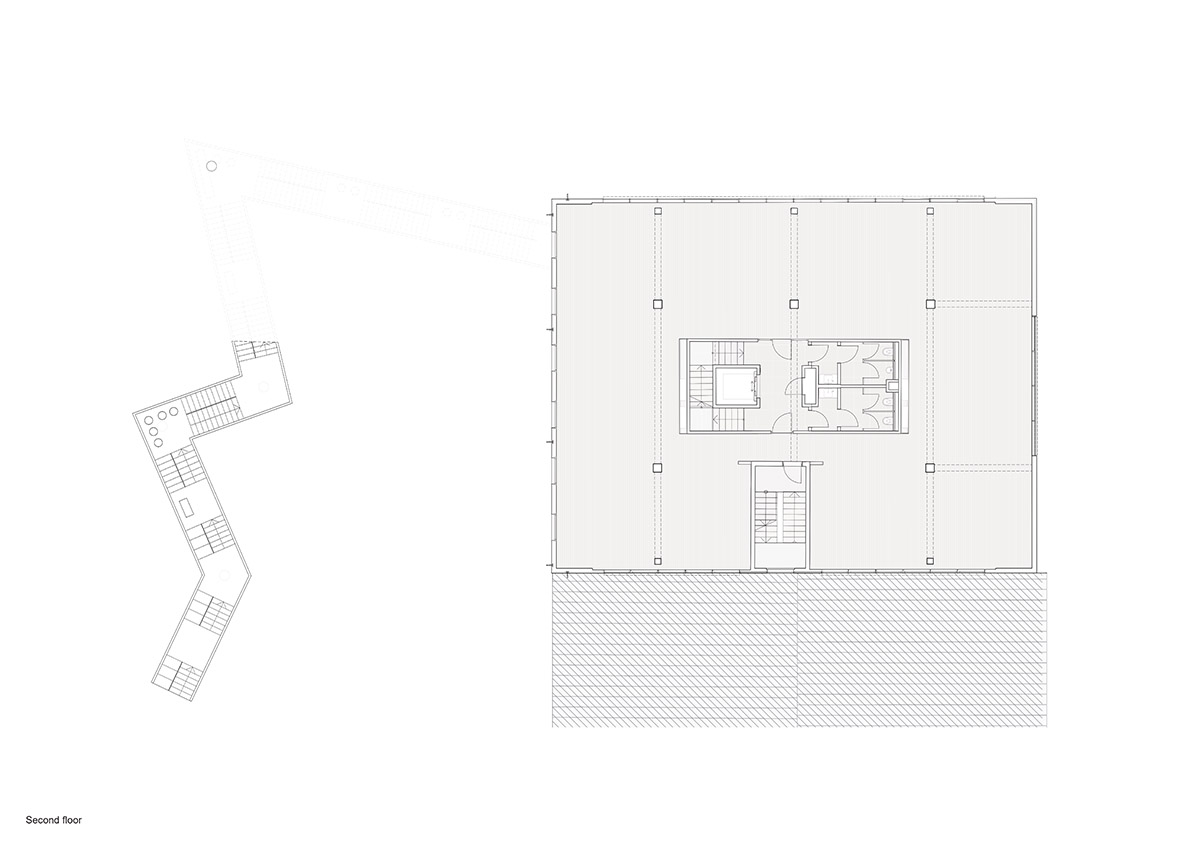
Second floor plan

Third floor plan

Fourth floor plan
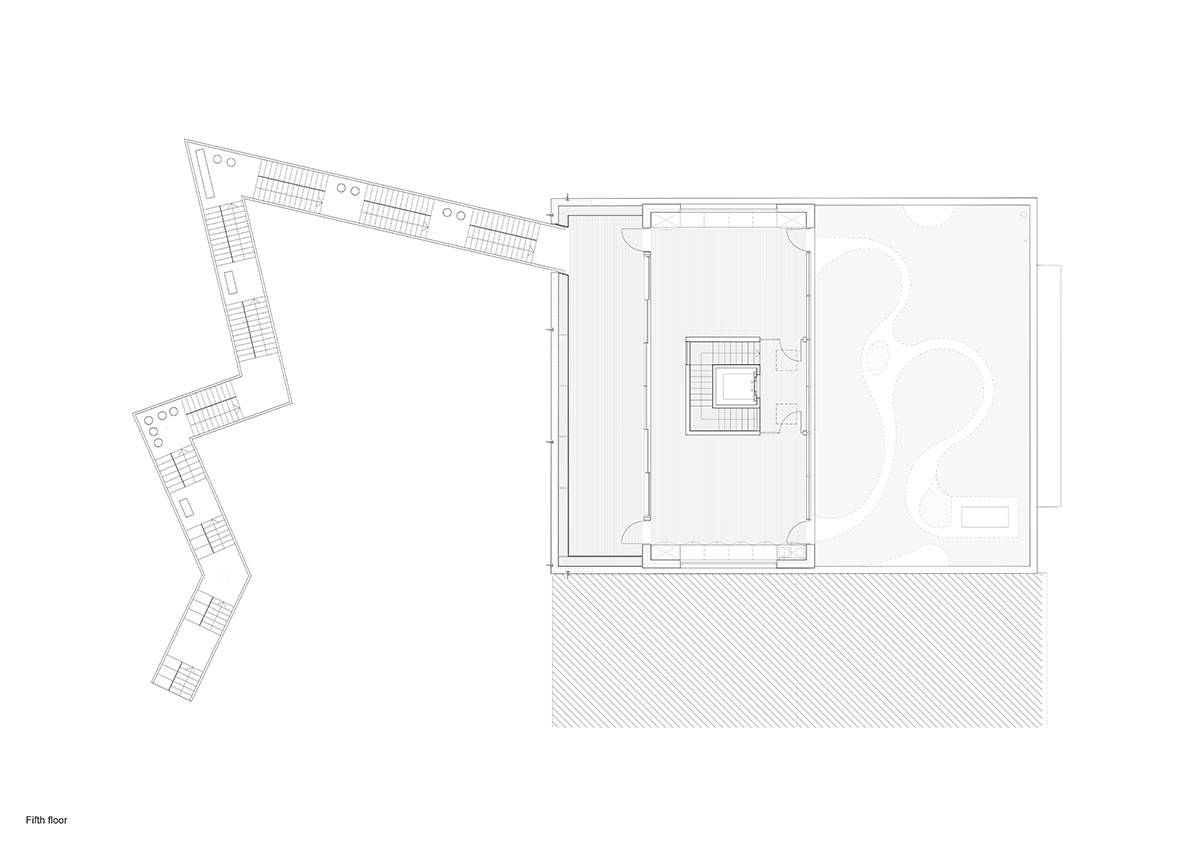
Fifth floor plan
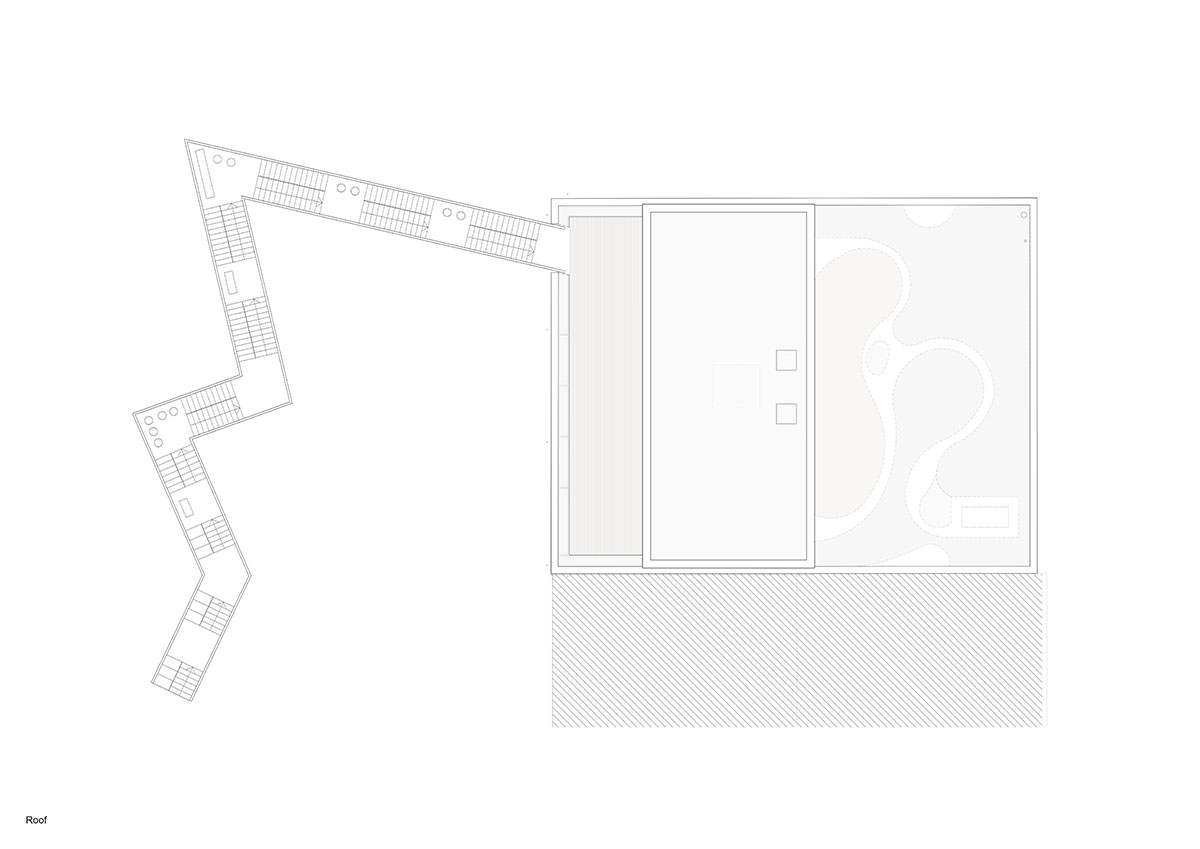
Roof floor plan

Section AA
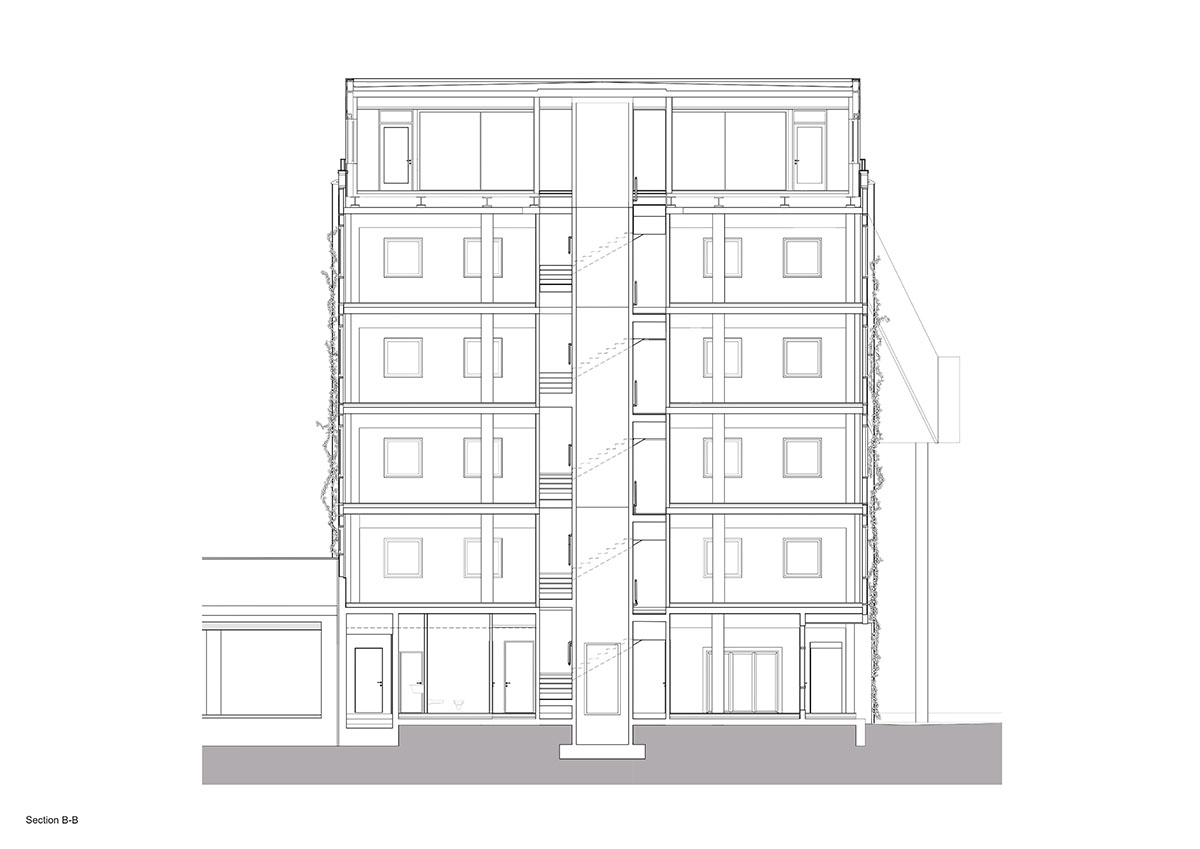
Section BB
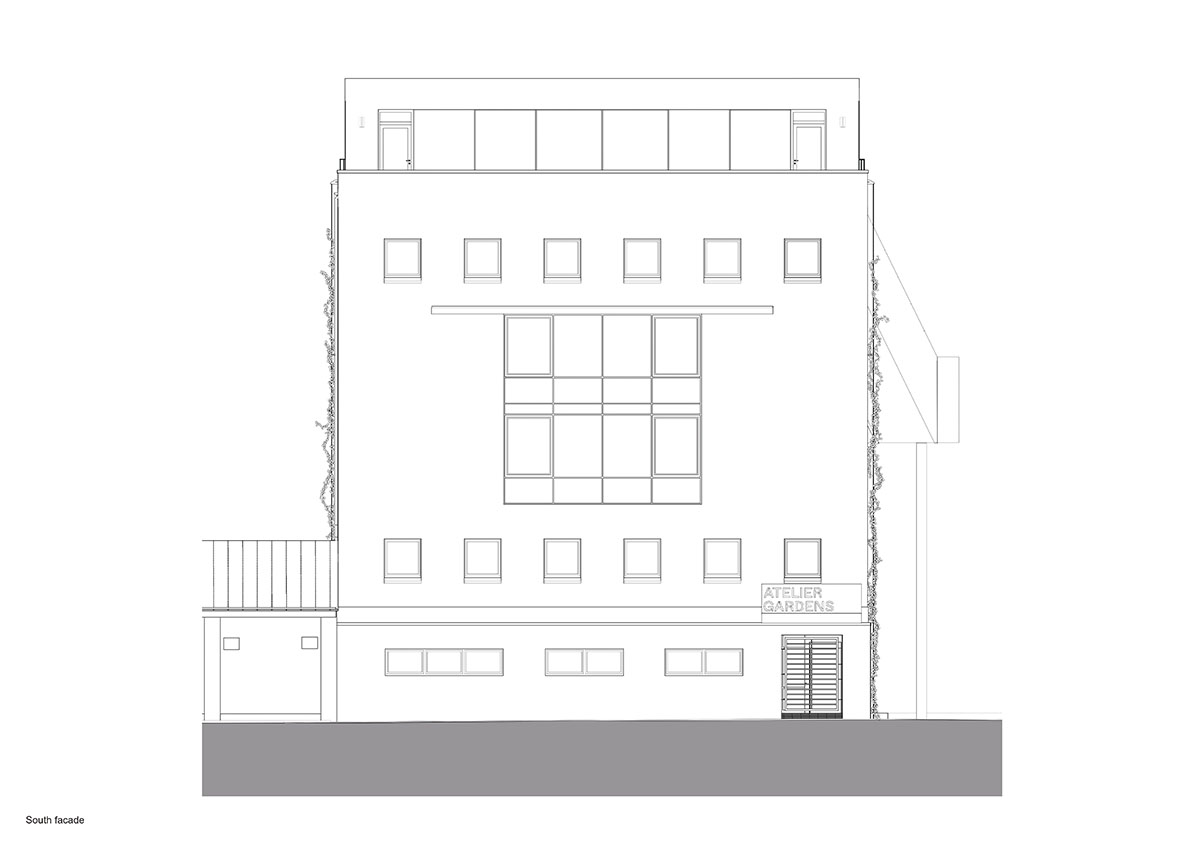
South façade

North façade
The architectural designs were developed in collaboration with local co-architect Hirschmüller Schindele Architekten, while London-based designers Harris Bugg Studio developed the masterplan’s landscape design.
Construction work has begun on MVRDV's vertical green oasis, La Serre, outside of Paris, France. MVRDV and Space Encounters won a competition to design a new residential tower in Amsterdam’s Sluisbuurt neighbourhood, the Netherlands.
Project facts
Project name: Atelier Gardens Haus 1
Location: Berlin, Germany
Year: 2020-2023
Client: Fabrix Capital
Architects: MVRDV
Founding Partner in charge: Jacob van Rijs
Partner: Fokke Moerel
Design Team: Klaas Hofman, Jonathan Schuster, Monica Di Salvo, Pim Bangert, Andre Bahremand, Simone Costa, Egle Jacinaviciute, Andrea Molinari.
Visualisations: Antonio Luca Coco, Angelo La Delfa, Jaroslaw Jeda
Environmental Advisor: Peter Mensinga
Partners
Co-architect: HS-Architekten (Markus Hirschmüller, Harald Schindele, Andreas Credo, Leonie Lorenz, Miguel Lopez, Maximilian August, Larissa Preuss, Benedict Tulinius, Goran Petrovic, Lydia Kotzan, Ioanna Nicolaou, Claudia Große-Hartlage)
Landscape Design: Harris Bugg Studio
Project Coordination: Drees & Sommer
Fire protection: Brandschutz Plus+ Eberl-Pacan Brandschutzplaner
Structural + Facade engineering: Drees & Sommer SE
M & E / Planning: Buro Happold
Building physics: Ingenieurbüro Axel C. Rahn
Waste water: HATI Gesellschaft für Handwerk Technik und Innovation
Ground Surveyor: MKP
General contractor: KPM3
Lighting advisor: Deltalight
Metal construction: Metallbau Weinmann
Carpentry and Roofing: Zimmerei & Dachdeckerei Quappe
All images © Schnepp Renou unless otherwise stated.
All drawings © MVRDV.
> via MVRDV
adaptive reuse Berlin MVRDV office office building renovation staircase
